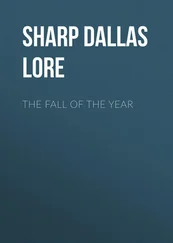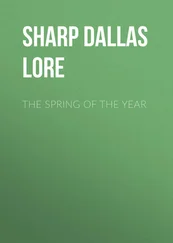Dallas Sharp - The Face of the Fields
Здесь есть возможность читать онлайн «Dallas Sharp - The Face of the Fields» — ознакомительный отрывок электронной книги совершенно бесплатно, а после прочтения отрывка купить полную версию. В некоторых случаях можно слушать аудио, скачать через торрент в формате fb2 и присутствует краткое содержание. Жанр: Природа и животные, foreign_antique, foreign_prose, на английском языке. Описание произведения, (предисловие) а так же отзывы посетителей доступны на портале библиотеки ЛибКат.
- Название:The Face of the Fields
- Автор:
- Жанр:
- Год:неизвестен
- ISBN:нет данных
- Рейтинг книги:5 / 5. Голосов: 1
-
Избранное:Добавить в избранное
- Отзывы:
-
Ваша оценка:
- 100
- 1
- 2
- 3
- 4
- 5
The Face of the Fields: краткое содержание, описание и аннотация
Предлагаем к чтению аннотацию, описание, краткое содержание или предисловие (зависит от того, что написал сам автор книги «The Face of the Fields»). Если вы не нашли необходимую информацию о книге — напишите в комментариях, мы постараемся отыскать её.
The Face of the Fields — читать онлайн ознакомительный отрывок
Ниже представлен текст книги, разбитый по страницам. Система сохранения места последней прочитанной страницы, позволяет с удобством читать онлайн бесплатно книгу «The Face of the Fields», без необходимости каждый раз заново искать на чём Вы остановились. Поставьте закладку, и сможете в любой момент перейти на страницу, на которой закончили чтение.
Интервал:
Закладка:
There were several ways that Agassiz might have proceeded: he might have got a leave of absence for the spring term, taken his laboratory to some pond inhabited by turtles, and there camped until he should catch the reptile digging out her nest. But there were difficulties in all of that – as those who are college professors and naturalists know. As this was quite out of the question, he did the easiest thing – asked Mr. Jenks of Middleboro’ to get him the eggs. Mr. Jenks got them. Agassiz knew all about his getting of them; and I say the strange and irritating thing is, that Agassiz did not think it worth while to tell us about it, at least in the preface to his monumental work.
It was many years later that Mr. Jenks, then a gray-haired college professor, told me how he got those eggs to Agassiz.
“I was principal of an academy, during my younger years,” he began, “and was busy one day with my classes, when a large man suddenly filled the doorway of the room, smiled to the four corners of the room, and called out with a big, quick voice that he was Professor Agassiz.
“Of course he was. I knew it, even before he had had time to shout it to me across the room.
“Would I get him some turtle eggs? he called. Yes, I would. And would I get them to Cambridge within three hours from the time they were laid? Yes, I would. And I did. And it was worth the doing. But I did it only once.
“When I promised Agassiz those eggs I knew where I was going to get them. I had got turtle eggs there before – at a particular patch of sandy shore along a pond, a few miles distant from the academy.
“Three hours was the limit. From my railroad station to Boston was thirty-five miles; from the pond to the station was perhaps three or four miles; from Boston to Cambridge we called about three miles. Forty miles in round numbers! We figured it all out before he returned, and got the trip down to two hours, – record time: driving from the pond to the station; from the station by express train to Boston; from Boston by cab to Cambridge. This left an easy hour for accidents and delays.
“Cab and car and carriage we reckoned into our time-table; but what we didn’t figure on was the turtle.” And he paused abruptly.
“Young man,” he went on, his shaggy brows and spectacles hardly hiding the twinkle in the eyes that were bent severely upon me, “young man, when you go after turtle eggs, take into account the turtle. No! no! that’s bad advice. Youth never reckons on the turtle – and youth seldom ought to. Only old age does that; and old age would never have got those turtle eggs to Agassiz.
“It was in the early spring that Agassiz came to the academy, long before there was any likelihood of the turtles laying. But I was eager for the quest, and so fearful of failure, that I started out to watch at the pond fully two weeks ahead of the time that the turtles might be expected to lay. I remember the date clearly: it was May 14.
“A little before dawn – along near three o’clock – I would drive over to the pond, hitch my horse near by, settle myself quietly among some thick cedars close to the sandy shore, and there I would wait, my kettle of sand ready, my eye covering the whole sleeping pond. Here among the cedars I would eat my breakfast, and then get back in good season to open the academy for the morning session.
“And so the watch began.
“I soon came to know individually the dozen or more turtles that kept to my side of the pond. Shortly after the cold mist would lift and melt away, they would stick up their heads through the quiet water; and as the sun slanted down over the ragged rim of treetops, the slow things would float into the warm, lighted spots, or crawl out and doze comfortably on the hummocks and snags.
“What fragrant mornings those were! How fresh and new and unbreathed! The pond odors, the woods odors, the odors of the ploughed fields – of water-lily, and wild grape, and the dew-laid soil! I can taste them yet, and hear them yet – the still, large sounds of the waking day – the pickerel breaking the quiet with his swirl; the kingfisher dropping anchor; the stir of feet and wings among the trees. And then the thought of the great book being held up for me! Those were rare mornings!
“But there began to be a good many of them, for the turtles showed no desire to lay. They sprawled in the sun, and never one came out upon the sand as if she intended to help on the great professor’s book. The embryology of her eggs was of small concern to her; her Contribution to the Natural History of the United States could wait.
“And it did wait. I began my watch on the 14th of May; June 1st found me still among the cedars, still waiting, as I had waited every morning, Sundays and rainy days alike. June 1st was a perfect morning, but every turtle slid out upon her log, as if egg-laying might be a matter strictly of next year.
“I began to grow uneasy, – not impatient yet, for a naturalist learns his lesson of patience early, and for all his years; but I began to fear lest, by some subtle sense, my presence might somehow be known to the creatures; that they might have gone to some other place to lay, while I was away at the schoolroom.
“I watched on to the end of the first week, on to the end of the second week in June, seeing the mists rise and vanish every morning, and along with them vanish, more and more, the poetry of my early morning vigil. Poetry and rheumatism cannot long dwell together in the same clump of cedars, and I had begun to feel the rheumatism. A month of morning mists wrapping me around had at last soaked through to my bones. But Agassiz was waiting, and the world was waiting, for those turtle eggs; and I would wait. It was all I could do, for there is no use bringing a china nest-egg to a turtle; she is not open to any such delicate suggestion.
“Then came the mid-June Sunday morning, with dawn breaking a little after three: a warm, wide-awake dawn, with the level mist lifted from the level surface of the pond a full hour higher than I had seen it any morning before.
“This was the day. I knew it. I have heard persons say that they can hear the grass grow; that they know by some extra sense when danger is nigh. That we have these extra senses I fully believe, and I believe they can be sharpened by cultivation. For a month I had been brooding over this pond, and now I knew. I felt a stirring of the pulse of things that the cold-hearted turtles could no more escape than could the clods and I.
“Leaving my horse unhitched, as if he, too, understood, I slipped eagerly into my covert for a look at the pond. As I did so, a large pickerel ploughed a furrow out through the spatter-docks, and in his wake rose the head of an enormous turtle. Swinging slowly around, the creature headed straight for the shore, and without a pause scrambled out on the sand.
“She was about the size of a big scoop-shovel; but that was not what excited me, so much as her manner, and the gait at which she moved; for there was method in it and fixed purpose. On she came, shuffling over the sand toward the higher open fields, with a hurried, determined see-saw that was taking her somewhere in particular, and that was bound to get her there on time.
“I held my breath. Had she been a dinosaurian making Mesozoic footprints, I could not have been more fearful. For footprints in the Mesozoic mud, or in the sands of time, were as nothing to me when compared with fresh turtle eggs in the sands of this pond.
“But over the strip of sand, without a stop, she paddled, and up a narrow cow-path into the high grass along a fence. Then up the narrow cow-path, on all fours, just like another turtle, I paddled, and into the high wet grass along the fence.
“I kept well within sound of her, for she moved recklessly, leaving a trail of flattened grass a foot and a half wide. I wanted to stand up, – and I don’t believe I could have turned her back with a rail, – but I was afraid if she saw me that she might return indefinitely to the pond; so on I went, flat to the ground, squeezing through the lower rails of the fence, as if the field beyond were a melon-patch. It was nothing of the kind, only a wild, uncomfortable pasture, full of dewberry vines, and very discouraging. They were excessively wet vines and briery. I pulled my coat-sleeves as far over my fists as I could get them, and with the tin pail of sand swinging from between my teeth to avoid noise, I stumped fiercely but silently on after the turtle.
Читать дальшеИнтервал:
Закладка:
Похожие книги на «The Face of the Fields»
Представляем Вашему вниманию похожие книги на «The Face of the Fields» списком для выбора. Мы отобрали схожую по названию и смыслу литературу в надежде предоставить читателям больше вариантов отыскать новые, интересные, ещё непрочитанные произведения.
Обсуждение, отзывы о книге «The Face of the Fields» и просто собственные мнения читателей. Оставьте ваши комментарии, напишите, что Вы думаете о произведении, его смысле или главных героях. Укажите что конкретно понравилось, а что нет, и почему Вы так считаете.












